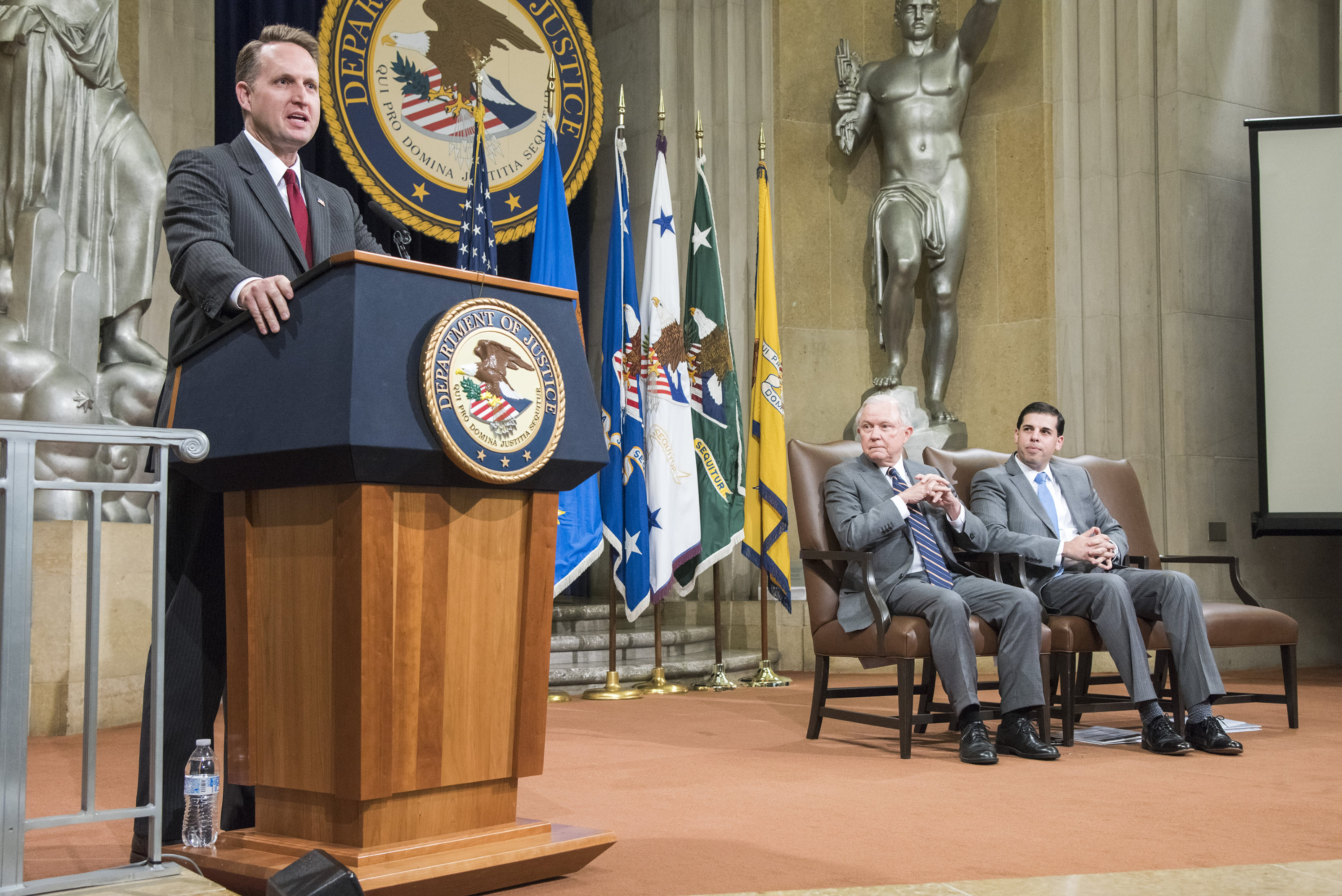
Former DOJ Civil Rights Official Acknowledges He Made Incorrect Statement in Sworn Declaration
Former Justice Department official John Gore is being forced to revise past statements he made about emails he sent about official business from a personal account.

Former Justice Department official John Gore is already in hot water for having allegedly lied about the Trump administration’s attempts to add a citizenship question to the 2020 census. Now, Gore is being forced to revise past statements he made in another case, this one regarding his communications about voting rights issues.
Gore, who served as the acting head of the Justice Department’s civil rights division, left the Trump administration in August. American Oversight recently obtained records indicating that a sworn declaration Gore signed in response to a lawsuit regarding his work on voting rights was misleading — and perhaps an outright lie. In an acknowledgment of this misrepresentation, the U.S. Attorney’s Office for the Southern District of New York (SDNY) filed a letter on Monday to the judge in that case, correcting misstatements in Gore’s declaration.
That lawsuit was brought by the Brennan Center and Protect Democracy for records related to Gore’s work at DOJ’s voting rights office, and led to the discovery that he sent emails from a personal, non-governmental account to a Republican Party official named Chris Cleveland. To avoid a search of his personal email, as ordered by the judge, Gore signed a declaration under penalty of perjury stating that his communications with Cleveland had not been about official Justice Department work.
But there were a few things wrong with this claim, as evidenced in documents American Oversight obtained in a separate lawsuit seeking Gore’s external communications. Those documents included emails sent in March 2017 — months before the emails that the Brennan Center lawsuit found — and show that not only did Gore’s superior at the time, Tom Wheeler, put Gore in touch with Cleveland for an official work-related reason, but that the subject of Gore’s contacts with Cleveland could hardly be interpreted as anything other than Justice Department business — in this case, an investigation into an alleged vote discrepancy in the 2016 election, which fell under Gore’s purview as the official overseeing the department’s voting section.
Following this discovery, Sens. Sheldon Whitehouse and Patrick Leahy requested that the Justice Department’s Office of Professional Responsibility investigate Gore’s “pattern of possible misconduct.” Then — days before the Justice Department’s due date for a brief defending its decision not to search Gore’s personal emails in our lawsuit — the department said that it would, in fact, search the personal account for agency business.
In Monday’s letter, the SDNY U.S. Attorney’s Office wrote, “We understand that, after reviewing the March 2017 e-mail thread, Mr. Gore is now uncertain as to when and how he first came into contact with Mr. Cleveland; Mr. Gore therefore can no longer affirm that he first came into contact with Mr. Cleveland outside of his work for DOJ-CRT [DOJ’s Civil Rights Division].”
The letter also references searches conducted for American Oversight’s lawsuit: “Mr. Gore is now aware, based on searches DOJ-CRT recently performed on his personal e-mail account in another FOIA case, of e-mails in that account that may be deemed agency records under FOIA.”
This Friday, the Justice Department will report on the results of its search of Gore’s personal email in American Oversight’s lawsuit. Public officials, particularly those charged with ensuring Americans’ right to vote, must be held to the highest standards of accountability. Given the pattern of misrepresentations and backtracking that we’ve seen from Gore and the Justice Department in this investigation, we’ll be reviewing those documents carefully.